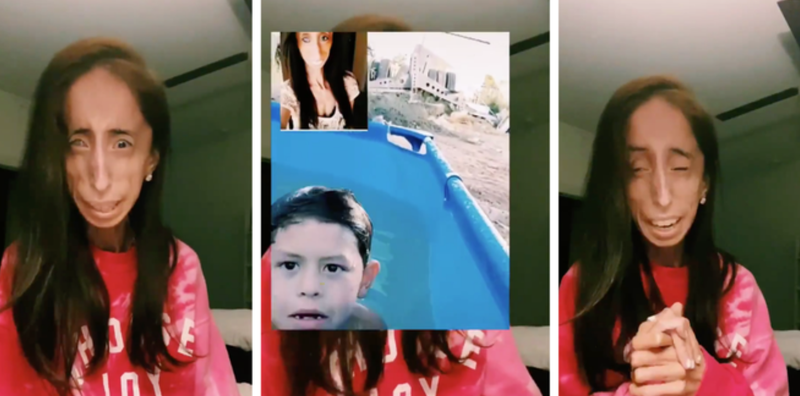WATCH: Why the #FaceTimePrank is unacceptable and cruel
Updated | By Jacaranda FM
Disability campaigner Lizzie Velásquez took to social media to call out the 'shameful’ TikTok trend of using pictures of her face to scare children.

Cyberbullying is unacceptable and shouldn't be tolerated, even when it’s dressed up as a "funny" prank.
READ ALSO: Comedian helps raise R3-million for bullied nine-year-old
The #FaceTimePrank, a new trend on TikTok, sees parents sharing videos of their children’s reactions when shown photos of people who look different to them. According to Indy100, the prank is meant to prompt a comical response from the kids, but it has been slammed for being insensitive.
In these videos, it’s clear the punchline is that the person has a disability and looks 'different', and it goes without saying, this is ableist and concerning.
In a now viral video, disability campaigner Lizzie Velásquez, who was once named the “world’s ugliest woman” because of her rare congenital diseases, has explained why it needs to end, in a TikTok video of her own.
Please help spread the word! @tiktok_us #facetimeprank pic.twitter.com/D7Q6z3a0sw
— Lizzie Velasquez (@littlelizziev) August 9, 2020
By Wednesday morning, Velásquez’s video was retweeted more than 260,000 times and viewed by more than 12-million Twitter users. Many users thanked her for sharing such an important message.
READ ALSO: "Since the first day of school I faced bullying" - Chad Esau
“This trend where you are pretending to FaceTime someone who is disabled or is a baby or there’s some crazy mugshot and you’re showing it to someone to get their reaction and say ‘Oh hey, talk to this person’, just to get a quick laugh – this is not a joke”.
“Everything that these kids need to know about having empathy and being kind to one another starts at home. This is not ok."
This is a trend that needs to stop. We are human and we have feelings. Please keep that in mind.- Lizzie Velásquez
She pleads with people on social media, especially TikTok, to be better examples for children. “If you are an adult who has a young human in his life, please do not teach them that being scared of someone who doesn’t look like them is ok," she says in the video.
She also encourages parents to teach their children kindness and tolerance towards people who society deems 'different' because of their physical features or disabilities.
Show's Stories
-
LISTEN: Rob Forbes, Rozanne McKenzie share their unique couple nicknames
Want to know the loving nicknames given to Rob and Roz by their signific...
The Drive with Rob & Roz 2 hours ago -
VIDEO: Alec Baldwin responds to "killer" comments
The actor was not impressed with the comments made by a woman filming him.
The Drive with Rob & Roz 3 hours ago